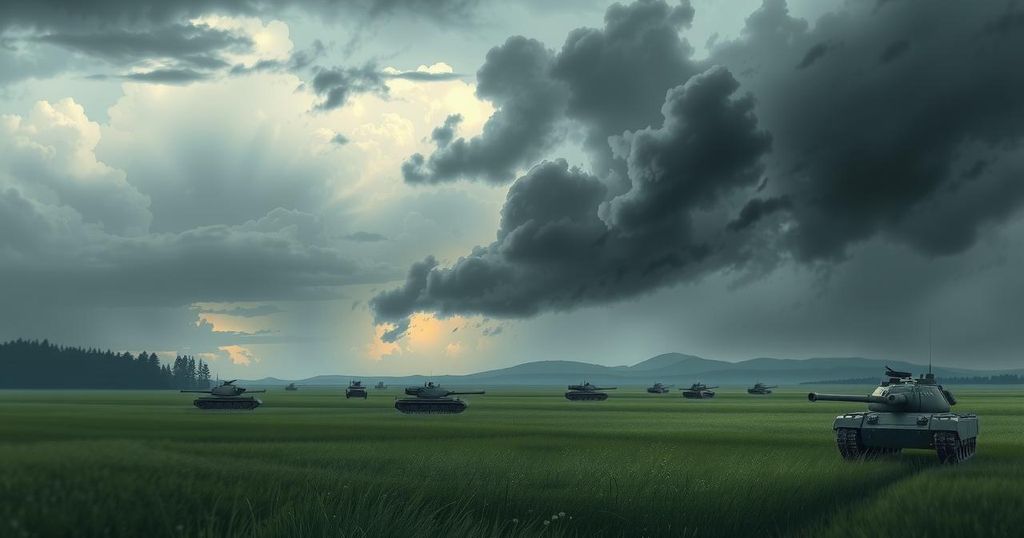Donald Trump’s envoy, Steve Witkoff, is in Moscow amid Russia’s claims of retaking territory and firm warnings against foreign troop involvement in Ukraine. The Kremlin has outlined demands for any ceasefire, expressing skepticism about such proposals. Ukraine experiences severe humanitarian impacts, alongside ongoing discussions of increased military support from Finland. Additionally, Russia signals readiness for peace negotiations with the United States, amidst accusations of war crimes and regional defense spending escalations by the EU.
In recent developments related to the ongoing Ukraine conflict, Donald Trump’s envoy Steve Witkoff has arrived in Moscow to engage in discussions aimed at reaching a truce. This visit coincides with Russia announcing the retaking of a strategic town in the Kursk region. The Kremlin has issued stern warnings regarding the potential involvement of foreign troops in Ukraine, asserting that any such move would provoke a strong response from Russia.
Additionally, reports have emerged of specific demands from Russia for a ceasefire which include recognizing occupied territories as Russian. Kremlin aide Yuri Ushakov has characterized the proposed ceasefire as merely a temporary pause, indicating Russia’s skepticism towards the efficacy of such arrangements. Yesterday, military analyst Michael Clarke suggested that Ukraine might have more incentive to agree to a cessation of hostilities than Russia.
Finland and Ukraine have solidified their defense alignment through a new bilateral defense agreement, enhancing cooperation in armament and intelligence sharing. Finland’s recent support includes a military aid package valued at approximately €200 million, evidencing its commitment to assisting Ukraine amidst ongoing hostilities.
In tragic news, three individuals were reported killed due to Russian attacks in the eastern Donetsk region, with numerous additional injuries resulting from the violence. Meanwhile, Ukraine’s human rights ombudsman has filed allegations of war crimes against Russia, emphasizing the need for accountability regarding recent reported executions of prisoners of war.
Furthermore, Russia has cautioned that proposed increases in EU defense spending stem from a narrative of Russophobia, suggesting such measures could escalate tensions further. In a notable move, Russia’s foreign ministry has expressed readiness for peace talks with the United States, advocating for dialogue to address conflicts stemming from the war.
As Russian forces claim significant advancements, particularly in Kursk, there have been comprehensive efforts by external powers, including discussions of a potential peacekeeping force. With the ongoing humanitarian challenges and military engagements, both sides face critical decisions regarding future engagements and potential resolutions.
The current situation in Ukraine remains volatile, characterized by Russia’s claims of territorial control and warnings against foreign troop involvement. Diplomatic efforts led by Donald Trump’s envoy indicate a pursuit of a ceasefire, despite skepticism from the Kremlin. The humanitarian toll remains severe, underlined by casualties in Donetsk and reports of alleged war crimes. Overall, the evolving geopolitical landscape continues to shape the complexities of the conflict and the international response to it.
Original Source: news.sky.com




